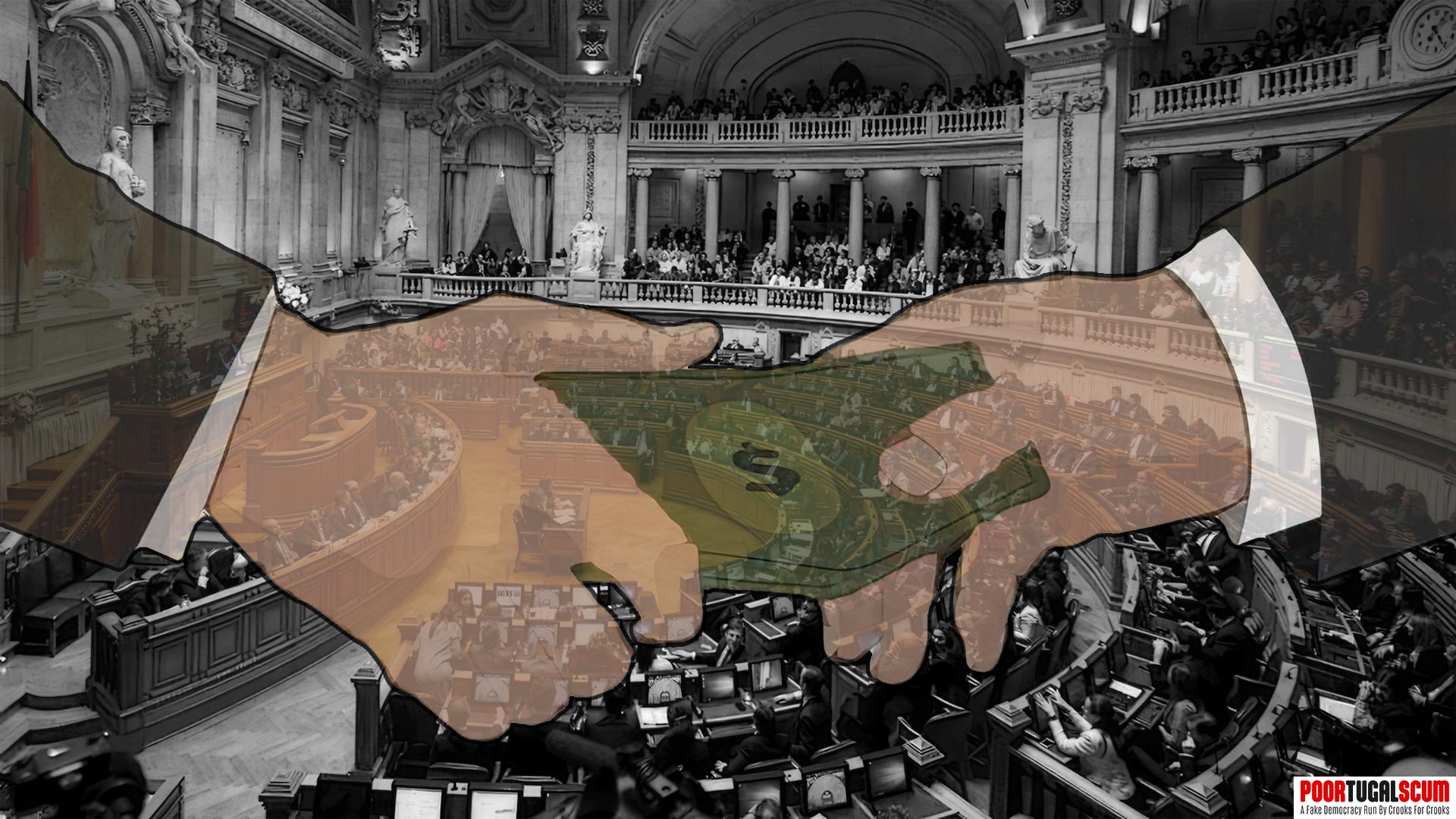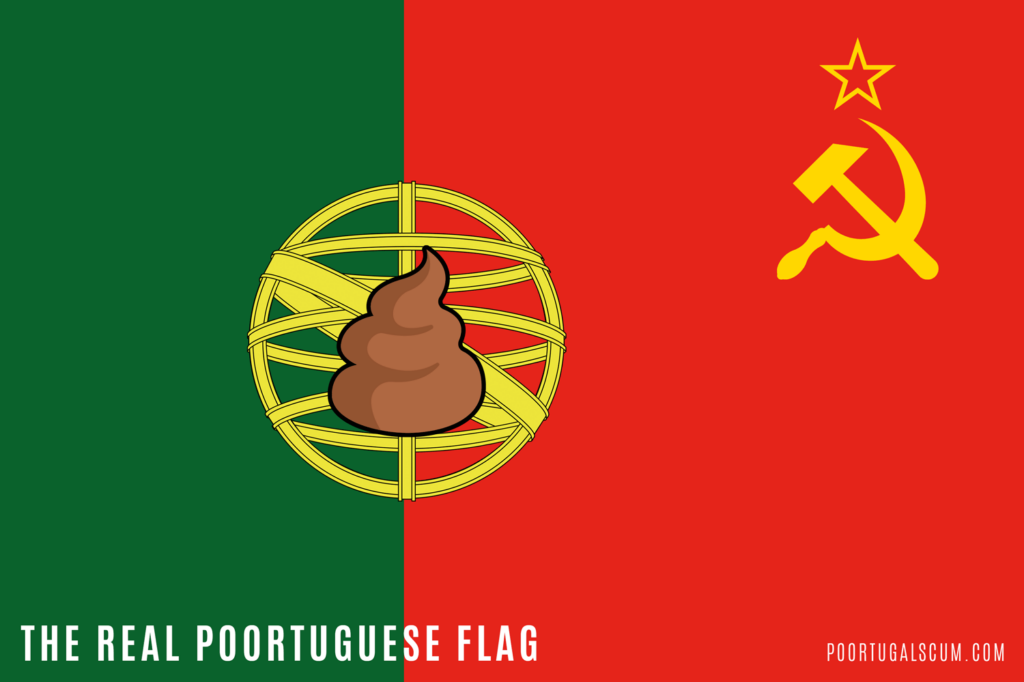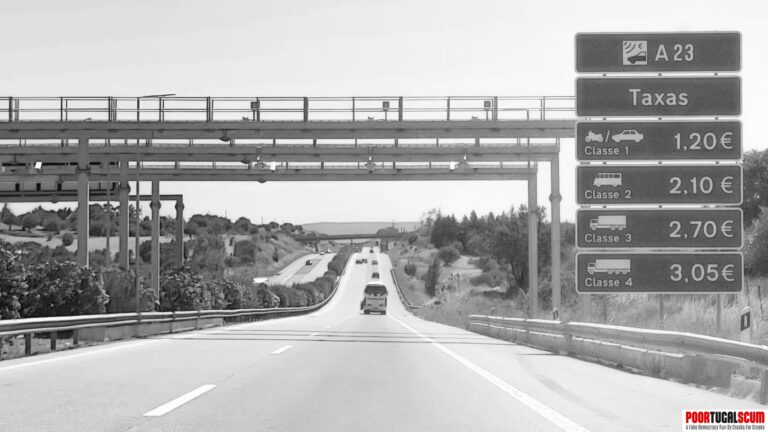In Portugal, legislators serve those who “finance” them, not the people who elected them.
Many deputies are also managers of companies with which the state negotiates contracts with Portuguese money. (!!!)
“The legislation comes from large law firms, mainly in Lisbon, which also make money from the opinions they are asked to interpret these same laws, and also make money from selling the trapdoors they leave in the law to companies”. (!!!)
“The Portuguese Parliament looks more like a real representative office, with members of the Public Works Commission working for construction companies and members of the Health Commission working for medical laboratories”. (!!!)
Please read the rest of the article below, it gets even worse than this.
For me it is totally unacceptable and even a scandal that a farce of a country like Portugal, ENDLESS corrupt, is allowed to be a member of the EU!
The following article is a translation (mostly MT). You can find the link to the original website at the end of it.
Former vice-president of the Chamber of Porto Paulo Morais stated Friday night, in Porto, that “the center of corruption in Portugal has been the Assembly of the Republic, due to the presence of deputies who are, at the same time, company administrators”
“Fortunately, this parliament is leaving. Of the 230 deputies, 30%, that is 70, are administrators or managers of companies that have direct business with the State“, denounced Paulo Morais, in a debate on corruption organized by the civic-political group Porto Laranja, assigned to the PSD.
For the university professor, the Portuguese parliament “looks more like a real representative office, with members of the public works commission working for builders and the health commission working for medical laboratories.”
Paulo Morais accused the Lena Group of being the largest supplier to the Portuguese State (2009 data) and politicians of creating
“perfectly imperceptible legislation”, with “many rules for no one to notice anything, many exceptions to benefit friends and unlimited discretionary power to those who apply the law”.
“The legislation comes from large law firms, mainly in Lisbon,
which also make money from the opinions they are asked for to interpret these same laws, and also make money by selling the trapdoors they left in the law to companies”, he criticized.
For the vice-president of the non-governmental organization Transparency International in Portugal (TIP),
“deputies are at the service of those who financed them and not those who elected them”,
with the party financing law being “the law that most embarrasses Portugal” .
“There is a permanent exchange of seats between the government and the banks and construction companies, which finance the parties”,
stated Paulo Morais, citing the cases of Jorge Coelho and Valente de Oliveira, administrators of Mota Engil, and José Lello, administrator from BST.
Paulo Morais gave as an example of corruption the renegotiation that the José Sócrates government carried out with the concessionaires of the old freeways at no cost to the user (SCUT), signing in July 2010 annexes to the respective contracts that replace traffic counts with passage estimates.
“The SCUT concessionaires are the same ones that finance the parties”,
he stressed, arguing that the new Government should renegotiate these contracts again,
because they only benefit the construction companies and force the State to pay much more.
Paulo Morais also criticized the “scams” in the area of urban planning practiced by many municipalities, accusing them of
“valuing land at around two thousand percent without any difficulty”, just to benefit a certain “real estate predator”.
“This type of mafia only exists in two types of business in Portugal: urban planning and drug trafficking”, he stressed, criticizing the “absolute promiscuity between the State and private individuals”.
Paulo Morais revealed that TIP is preparing an Internet portal, inspired by the website usaspend.gov that then senator Barack Obama launched a few years ago to make all government spending in the United States public, where it will be possible to quickly and easily find information that is “apparently public, but is not scrutinizable”.
The portal should go online later this year, and the search tool is currently being worked on.
( … )
The president of the Bar Association, Marinho Pinto, who also participated in the debate, argued that lawyers should stop practicing the profession when they are elected deputies.
Marinho Pinto also criticized the fact that public works in Portugal are always paid for at prices higher than those awarded, stating that
“this is only possible in a country where there is no public opinion and the parties are compromised to the core”.









